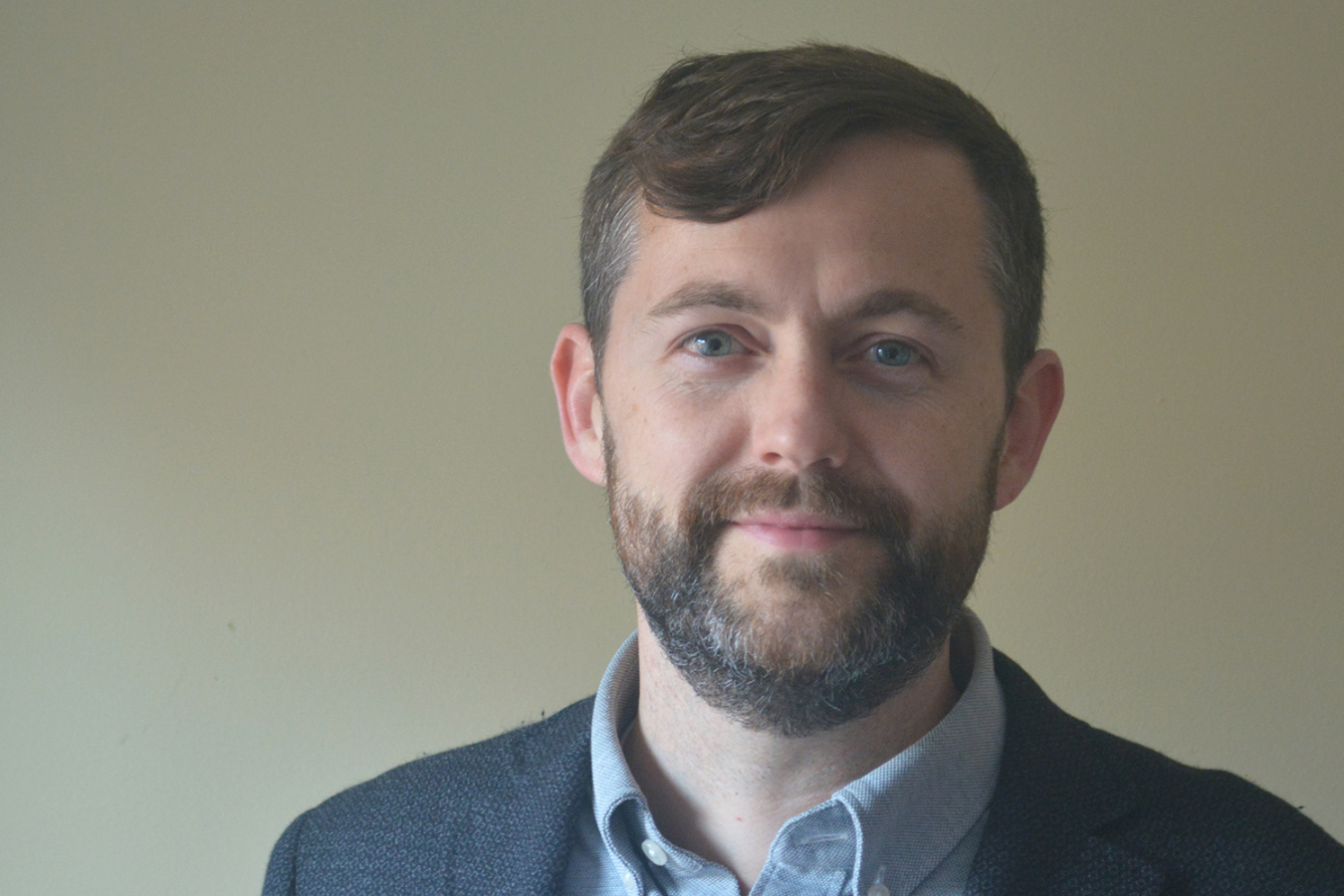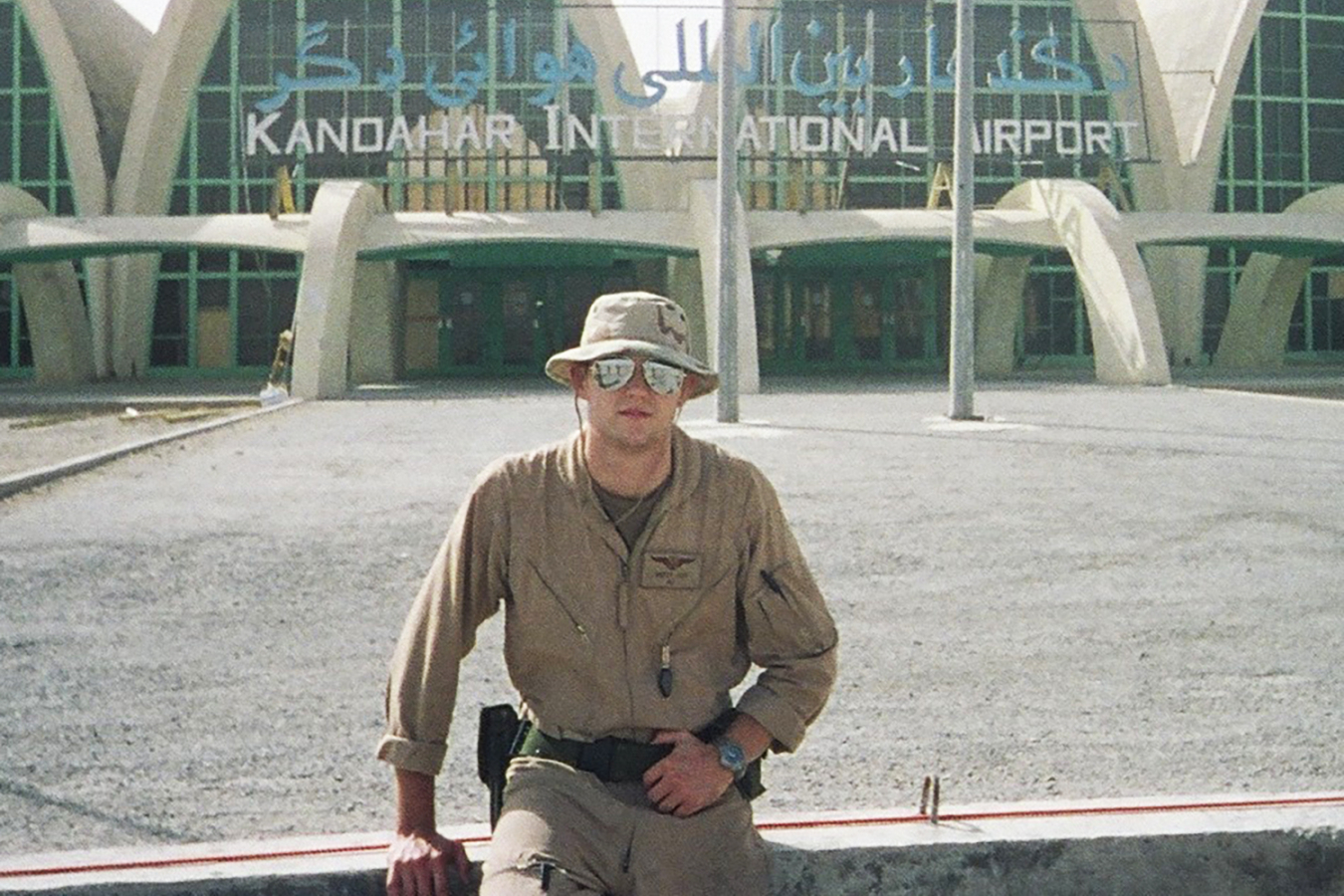Meet Brett Cox. His time in the U.S. Navy shaped his belief that military action must be our last resort. His time at #NNSA helped put that into action as he has worked to keep nuclear materials and facilities safe from potential terrorists.
National Nuclear Security Administration
November 7, 2023

How do you support NNSA?
I collaborate with and coordinate teams of nuclear technology experts to reduce the amount of nuclear material around the world that could fall into the wrong hands. This means funding and managing projects to design new facilities and develop new materials that will make nuclear research reactors and medical isotope production facilities safer.
What is your personal background, and how has that shaped you and your approach to your career?
I joined the Navy after high school and became a Persian linguist. My experiences supporting combat operations in Afghanistan and Iraq inform a personal world view that the United States must do everything in its power to not get involved in conflicts like these again. I believe that military action must truly be a last resort. Since my time in the Navy, I’ve worked in foreign aid to help decrease global poverty, foreign policy analysis to lend my perspective, and now with the NNSA to reduce the likelihood of nuclear terrorism.
What did you study in school and how did it impact you personally and professionally?
I studied political science, foreign policy, negotiation, history, and policy. Focusing on these areas taught me how to identify what motivates nations and people, how they act on those motivations, mistakes and successes through the ages, and how to bring all of this to bear on current issues and policy making.
I joined the Navy after high school and became a Persian linguist. My experiences supporting combat operations in Afghanistan and Iraq inform a personal world view that the United States must do everything in its power to not get involved in conflicts like these again. I believe that military action must truly be a last resort.
What led you to a career in nuclear security?
A personal and professional focus of mine for over 20 years has been relations between the United States and Iran. The matter of Iran’s nuclear program guided me to the greater field of nuclear security and nuclear nonproliferation, and during graduate school I came across the NNSA Graduate Fellowship Program. From there I joined the Office of Material Management and Minimization and have happily been here for seven years now.
What is the best part about your job?
All the brilliant people I get to call colleagues and co-workers. We are facing so many challenges at home and abroad, but I find some peace of mind knowing the kind of people dedicated to addressing these challenges.
What is your proudest accomplishment while working at NNSA?
When my office was able to make the decision that the United States no longer needed to export sensitive nuclear material to support medical isotope production – that felt like a very big contribution to national and global security.
Tell us something interesting about yourself.
I have a lot of lyrics in my head. I’ve been memorizing songs since a young age so there are seemingly random verses and choruses I can pull up across the evolution of my musical tastes from Metallica to Madonna to A Tribe Called Quest to Mohsen Namjoo to Townes Van Zandt and even some PSY.
Do you have any highlights from your time supporting NNSA?
I got to be a part of the overlapping efforts of nuclear security and medical isotope supply for the U.S. healthcare system. My office had a unique role in making sure there was a stable supply of medical isotopes for U.S. patients while also making sure those isotopes were produced in a safer and more secure way.
What advice would you have for anyone interested in a career in nuclear security?
Simple: Read. Read all of the curriculum and then read more in other subjects. It will all matter more and more as you work your way into the field and begin to work your way up.
Who is someone that inspires you and why?
I have two.
First would be Jason Bourne, whose story I read at just the right age to be both in boyish awe at the thrilling action and able to grasp the complicated dissociation between his current self and who he was before losing his memory. (Of course, the books are better than the movies!)
In the real world, I am inspired by the diplomat Richard Holbrooke. I think there are many more conflicts that could be resolved or avoided altogether by closer involvement and engagement among a few key figures at the very top like Richard Holbrooke brokered during the Balkan conflict.

